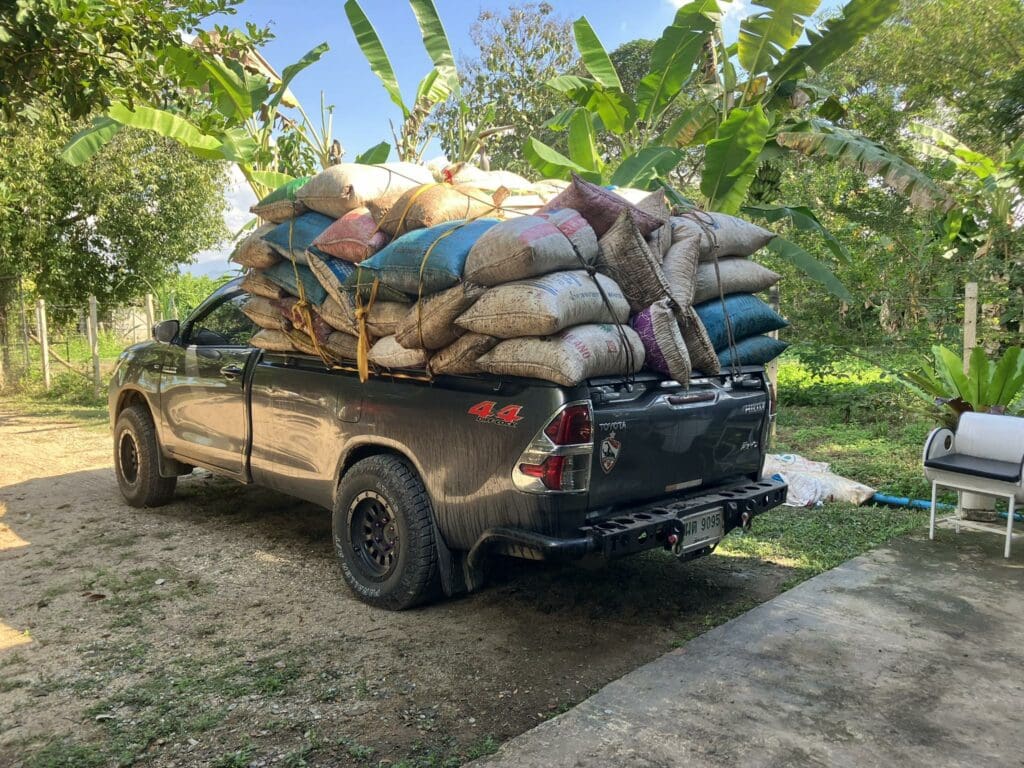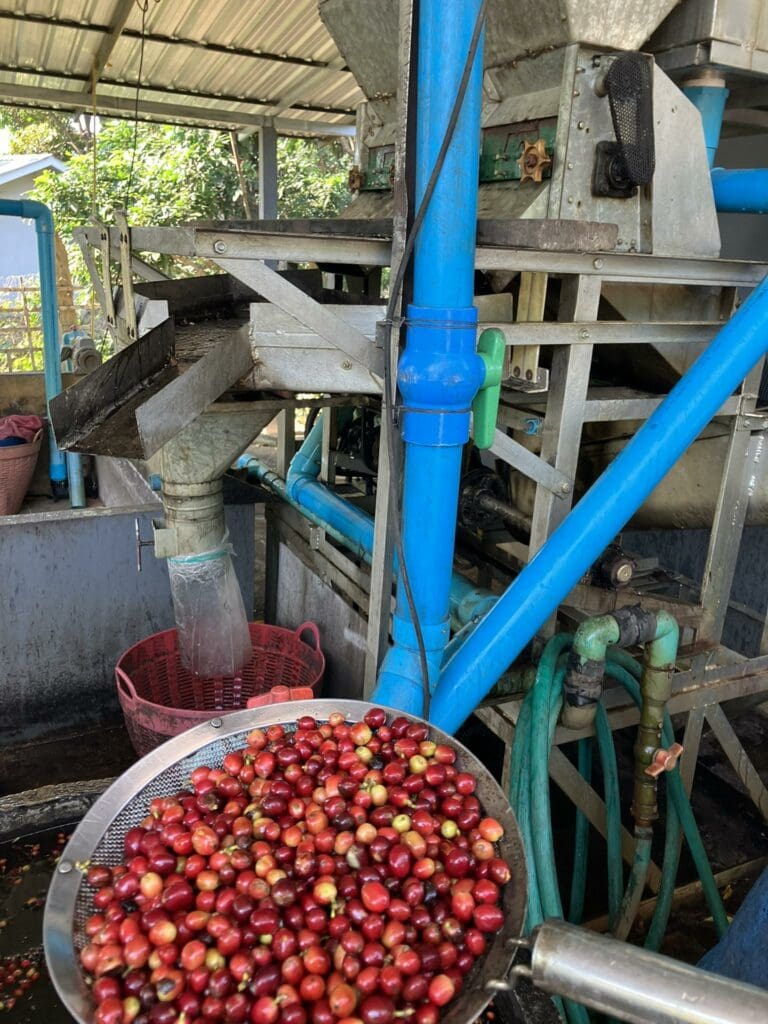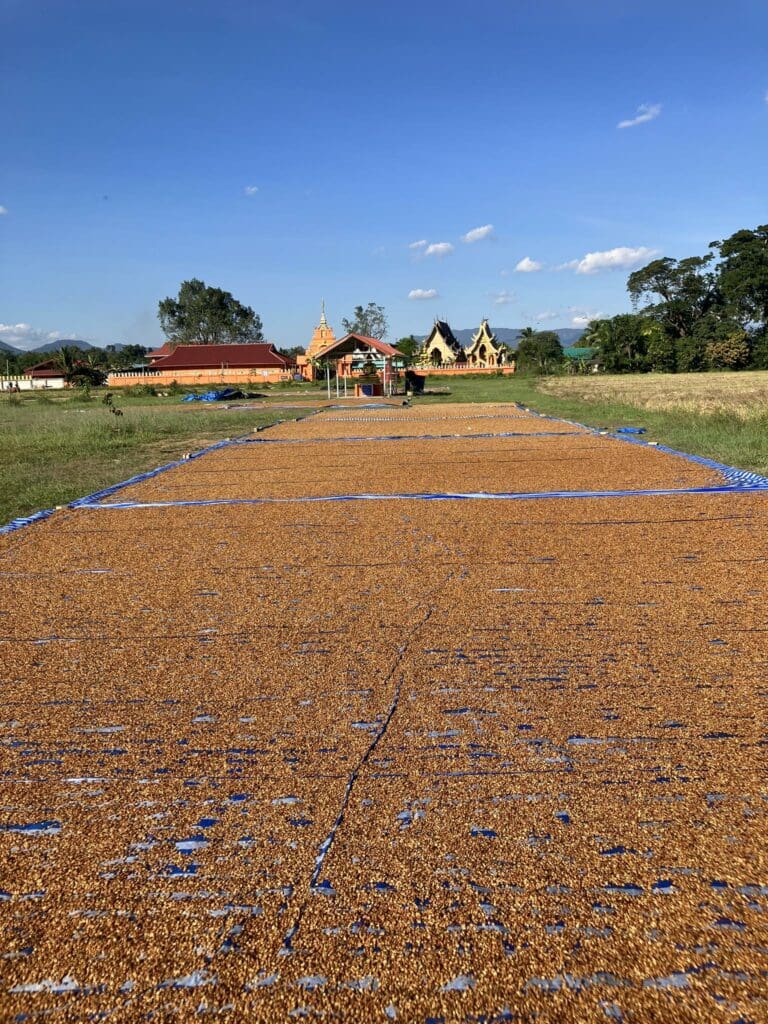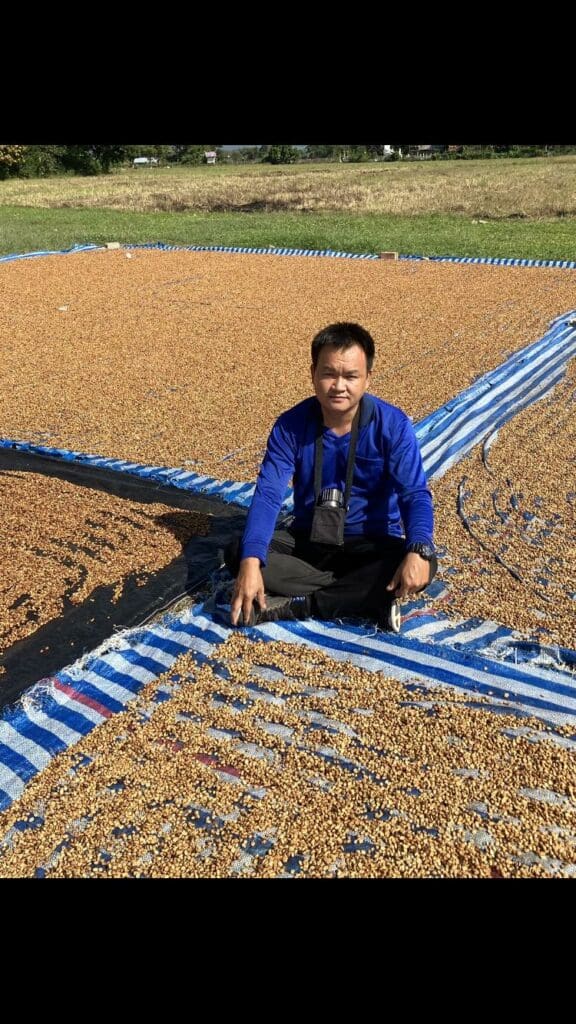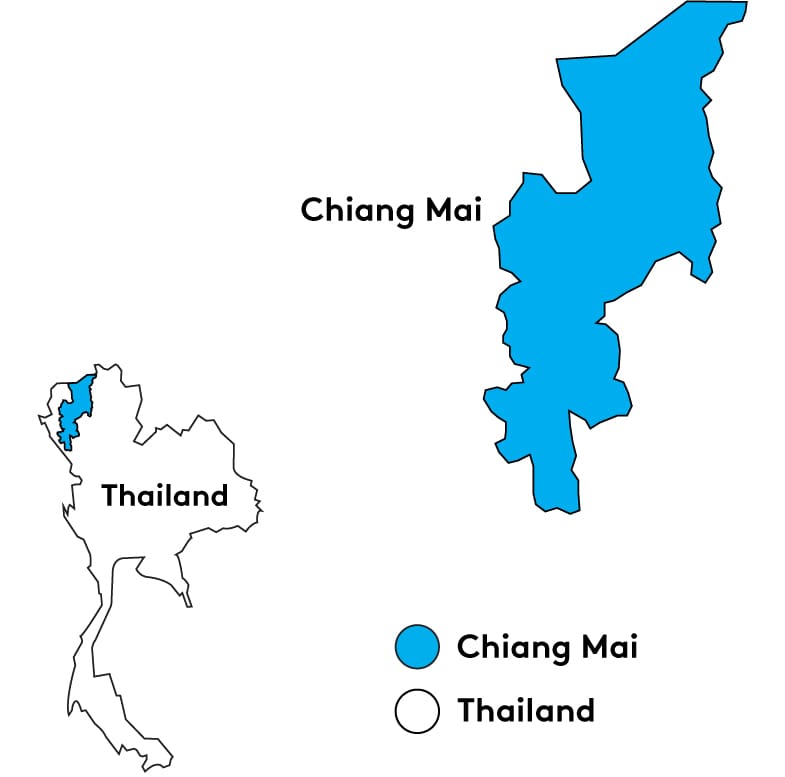This coffee was processed by coffee industry veteran Noi Duongdee who has been working as a coffee processor for over a decade. Noi worked with one of the pioneering mills in the Thai coffee specialty industry for many years before venturing out to start his own coffee processing plant in Chaiprakarn, Chiang Mai.
Coffee farming is a relatively new industry in Thailand, and one that is proving to be attractive to young entrepreneurs. Thailand’s current coffee history dates back to the 1970s, when an opium eradication project started by the King of Thailand introduced the first coffee trees to areas like Doi Saket. Efforts to reforest degraded land and introduce coffee and other crops to replace illicit cultivations proved extremely successful. Farmers’ mountain properties today are flourishing, with many of the original planted varieties—like Catuai, Typica, and local Chiang Mai which is a cross between SL-28, Caturra, and Timor hybrid—thriving in healthy production.
Chaiprakarn Red Honey was sourced from our exporting partners in Thailand, Beanspire Coffee. Beanspire’s co-founders, Fuadi Pitsuwan and Jane Kittiratanapaiboon, are part of the young generation moving the Thai coffee industry forward. Thailand is unique as a coffee producing country; the country’s specialty cafe and roaster scene is thriving, and domestic consumption demands regularly outpace the country’s production volume. Only around 5% of Thailand’s specialty coffee is exported each year, while the rest is enjoyed by Thai coffee drinkers. This means that the coffees selected for export by the team at Beanspire are each chosen to share the work of Thai coffee producers with a global audience, providing a glimpse into the growing specialty coffee revolution happening in the country.
Beanspire mill is one of the most advanced in Thailand, with a destoner, huller, and a gravity table for density sorting. Jane and Fuadi have built Beanspire to produce quality from the outset, passing all coffee through density and hand sorting multiple times to ensure quality and uniformity. Coffee is packed in triple layer bags for shipment: cotton bag as outer layer, High Density Polyethylene (HDPE) as middle layer, and GrainPro as inner layer. The HDPE bags help maintain moisture content, thus preserving quality for longer. We’re proud to partner with Beanspire Coffee to share this unique lot of coffee with you.
For this coffee, cherries are harvested throughout the day and rested for one night in cool temperatures before being pulped in the morning. After the coffee is pulped, the wet parchment is left to ferment for one day in order to partially remove the mucilage. The coffee is then dried for up to 25 days on a patio covered with plastic sheets for cleanliness during the drying process. When the moisture is at 10-12%, the coffee is then cured in hermetic bags for two months before milling.

